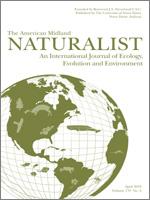Plants commonly host multiple microbial symbionts that regulate productivity and other ecosystem processes, yet multi-symbiont interactions within hosts are rarely examined. We evaluated how the presence of aboveground Epichloë fungal endophytes (E , symbiotic, and E−, endophyte experimentally removed) altered belowground colonization by arbuscular mycorrhizal fungi (AMF) in three grass species in a common environment. We sampled from E and E− populations of woodland bluegrass (Poa sylvestris A. Gray), grove bluegrass (Poa alsodes A. Gray), and tall fescue (Schedonorus arundinaceus Schreb.) in long-term experimental plots in woodlands near Nashville, Indiana. Endophyte symbiosis aboveground increased AMF colonization of roots in both Poa species, although this effect was only significant for hyphal colonization in P. sylvestris. Endophyte symbiosis did not significantly alter AMF colonization in S. arundinaceus, in contrast to prior findings for this species. Our results illustrate the effects of Epichloë sp. on AMF cosymbionts are not easily generalizable across plant-endophyte symbiota, even those that co- occur in the same ecosystem.
How to translate text using browser tools
1 April 2018
Asexual Epichloë Endophytes Do Not Consistently Alter Arbuscular Mycorrhizal Fungi Colonization in Three Grasses
Eric Kalosa-Kenyon,
Lindsey C. Slaughter,
Jennifer A. Rudgers,
Rebecca L. McCulley
ACCESS THE FULL ARTICLE
It is not available for individual sale.
This article is only available to subscribers.
It is not available for individual sale.
It is not available for individual sale.

The American Midland Naturalist
Vol. 179 • No. 2
April 2018
Vol. 179 • No. 2
April 2018




